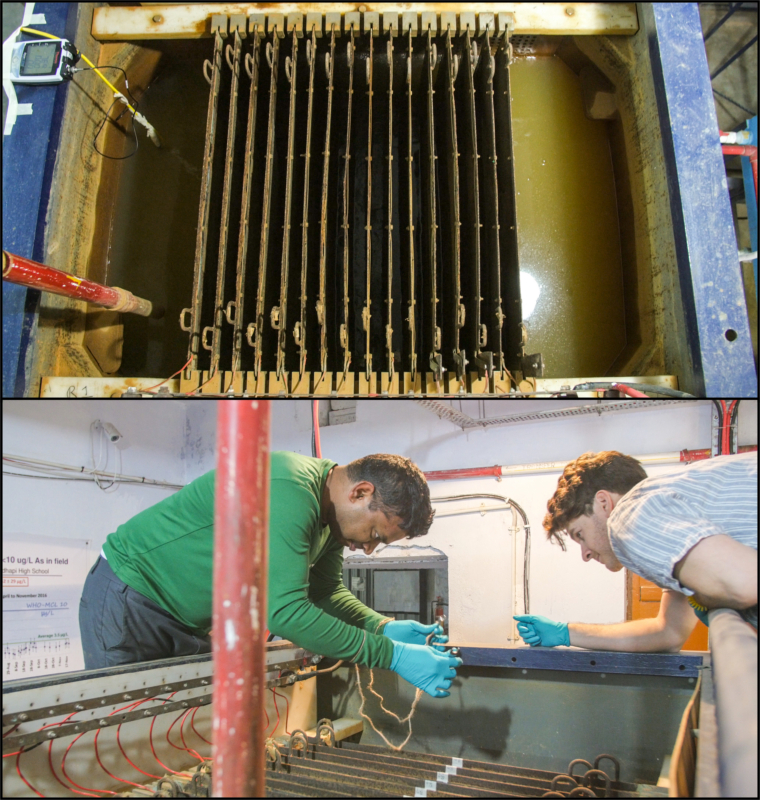Solution provider

The Geological Survey of Denmark and Greenland (GEUS) is an independent research and advisory institution belonging to the Danish Ministry of Energy, Supply and Climate.
Case
Groundwater management
Water management
Water resource management


The Geological Survey of Denmark and Greenland (GEUS) is an independent research and advisory institution belonging to the Danish Ministry of Energy, Supply and Climate.
Add the case to your visit request and let us know that you are interested in visiting Denmark
A majority of affected people live in more rural areas and lack the means for conventional arsenic treatment. Researchers from India, the US and Denmark have developed and implemented a low-cost electrochemical As treatment method in a rural part of South Asia. It is iron electrocoagulation (Fe EC), where a minor electric current is applied to steel that is in contact with pumped groundwater. This oxidises the metal to produce reactive iron oxide precipitates (i.e. rust particles) that effectively bind the As and prepares it for removal by gravitational settling or filtering the As loaded iron oxides.
The Fe EC-method can be powered by a local solar cell setup. The FE EC serves the local school of 2,500 children with 1L of arsenic-free water, per child per day and has a maximum capacity of 10,000 L/d. The simplicity of Fe EC has enabled technology transfer to the local village. Village residents are operating the plant and selling excess water to the village at an affordable price. It has improved trust in the technology and created jobs for local residents.
Contributors: Geological Survey of Denmark and Greenland GEUS (DK), University of California, Berkeley(US), Jadavpur University (India)